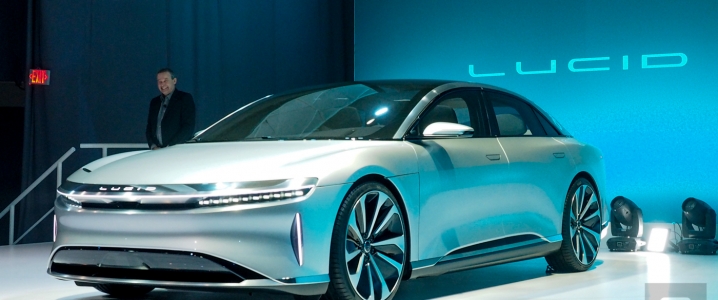Saudi Arabia’s sovereign wealth fund may buy an electric car maker competing with Tesla in the luxury car segment, Reuters reports, citing unnamed sources. According to them, the talks between PIF and Lucid, a private company based in California, are private and may not lead to a deal in the end.
However, if they do, PIF could become a majority shareholder in Lucid for US$1 billion. PIF would pay half at the completion of the deal, while the other half will be divided into two installments, dependent on Lucid achieving specific production milestones.
If the talks do lead to a deal, this would jeopardize the plans of Tesla’s chief executive Elon Musk to take the company private with the help of Saudi money—plans that he recently shared on Twitter, which caused the latest media frenzy along with an SEC probe into whether his “funding secured” statement about the plan was founded on fact.
Musk said he had plans to take Tesla private at a price of US$420 per share. When pressed by the media and financial market regulators, the CEO revealed he had been in talks with PIF for a couple of years, and the fund’s managers had made it clear to him the final decision was his. Related: Cracks In Global Economy Weigh On Oil Markets
Now that PIF may be negotiating another deal, Musk could be hard pressed to find the US$72 billion to take Tesla private, although he said probably two-thirds of current Tesla shareholders would stay with the company when it goes private, if it does. Saudi Arabia’s PIF is among these shareholders, after amassing a stake close to 5 percent.
The negotiations with Lucid show Saudi Arabia’s growing interest in electric vehicles as it seeks to diversify its economy away from oil. The Fremont company has not yet started mass producing vehicles, but two years ago it released a prototype for a luxury sedan, the Lucid Air, which comes with a price tag of US$100,000. Mass production was slated to begin by the end of this year.
By Irina Slav for Oilprice.com
More Top Reads From Oilprice.com:
- The “Weakest” EIA Report In Years
- Overlooked Gas Project Could Be Biggest Winner In Trade War
- Iran Sanctions Could Backfire On U.S. Drillers



















If the Saudis see their investment in Lucid, the electric vehicles’ (EVs) manufacturer, as a strategic way to hedge against oil, then why don’t they invest in China which is now the world leader in the development of EVs and solar energy. Alternatively, Saudi Arabia could invest in any European companies involved in ECs.
Saudi Arabia could start an EV factory in the country with foreign technical knowhow as part of Vision 2030 to diversify the Saudi economy and reduce Saudi dependence on the oil revenue.
An EV factory could be part of Saudi plans to build the world’s largest solar plant. The $200-billion project would produce 200 gigawatts of solar photovoltaic power and would take more than a decade to complete.
The Saudi solar project is symbolic in that it denotes a country making a strong commitment to a different kind of energy future. It also denotes that Saudi Arabia aims to remain one of the world’s vital energy producers.
Dr Mamdouh G Salameh
International Oil Economist
Visiting Professor of Energy Economics at ESCP Europe Business School, London